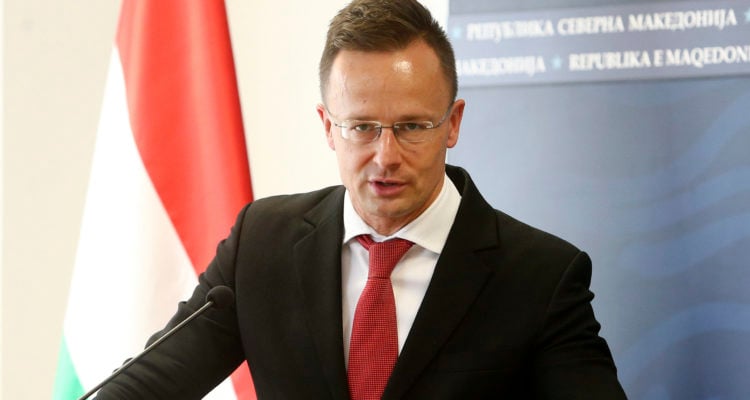Hungarian Foreign Minister says all the EU does is make statements, should give “less interference and more pragmatic cooperation.”
By Paul Shindman, World Israel News
Hungarian Foreign Minister Peter Szijjarto refused to sign a European Union statement calling for a ceasefire in the Gaza conflict, accusing the EU of being biased against Israel, AFP reported Tuesday.
“I have a general problem with these European statements on Israel,” Szijjarto told the AFP. “These are usually very much one-sided, and these statements do not help, especially not under current circumstances, when the tension is so high.”
EU foreign ministers had held a video conference chaired by Josep Borrell of Spain, the High Representative of the EU for Foreign Affairs and Security Policy, but after the meeting Borrell said all countries except Hungary had backed the statement.
Interviewed at the Hungarian embassy in Paris, Szijjarto told AFP that repeated statements from the EU had no effect on the ground.
Blocking such statements “is a right of every country in the European Union,” he said, pointing out that numerous EU statements in the past on China had not helped change things.
“So if we have already made eight statements, which didn’t make sense, why should we make a ninth one? … EU diplomacy should not consist only of judgements, negative statements and sanctions,” Szijjarto added. “So I think less judgement, less lecturing, less criticism, less interference and more pragmatic cooperation could give back a lot of strength to the European Union.”
In a statement after the video conference, Borrell said he thought it was necessary to coordinate the European Union response to the conflict, but admitted that because the foreign ministers had held “an informal meeting there are no formal conclusions.”
“I am happy to say that 26 out of the 27 Member States supported this overall sense of the discussion,” Borrell said.
“Once again, we condemn the rocket attacks by Hamas and other terrorist groups on the Israeli territory. And we fully support Israel’s right to self-defense, but we have also considered and stated that this has to be done in a proportional manner and respecting International Humanitarian Law,” he added, in an attempt to limit the Israeli military response to the rocket attacks while not addressing the issue of Hamas, which seized control of the Gaza Strip in a bloody 2007 military coup.




